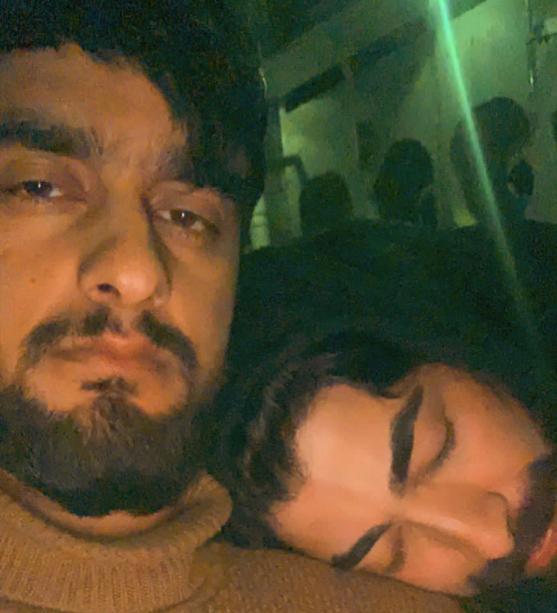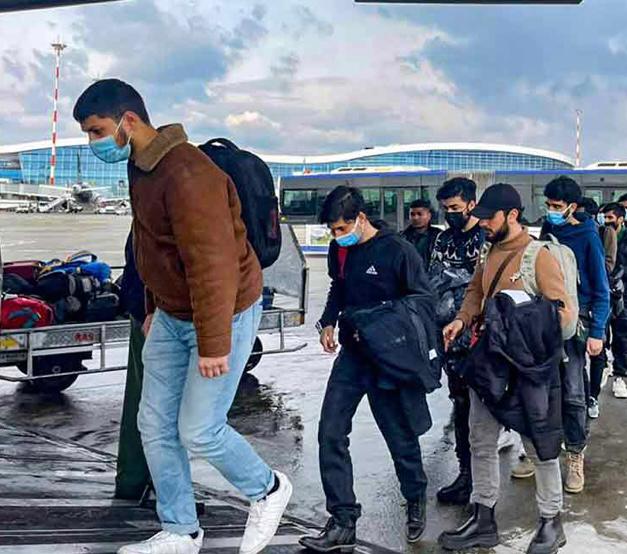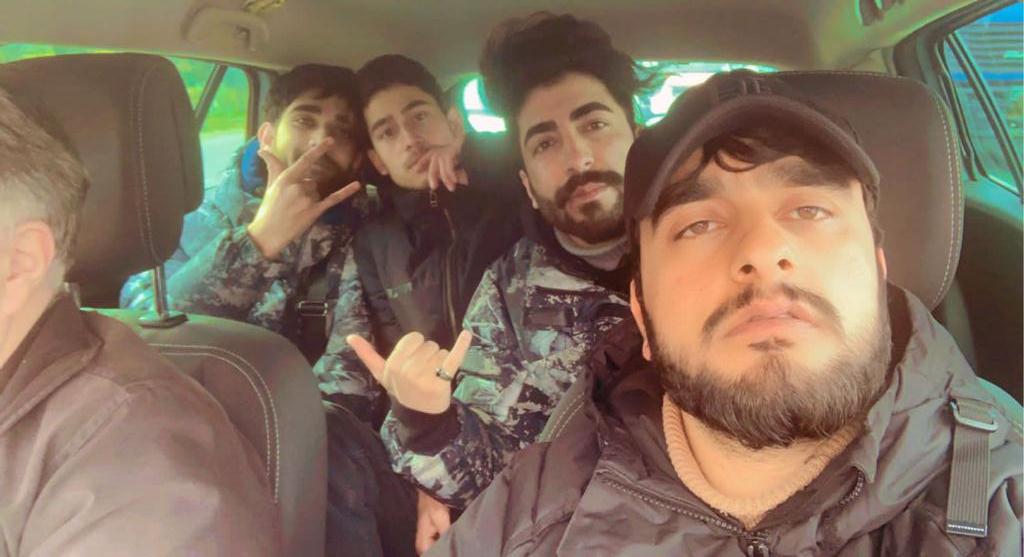When the offensive finally rattled the country housing my foreign campus, it unsettled me despite schooled in strife.
In that explosive moment, a Kashmiri in me wondered about our lives and times caught in the troubled timeline of conflict and war.
It felt as if the curse of uncertainty had come to unseat our faraway campus life as well.
Before the war, the peace would give you some moments of solace in the country you appreciated for its progressive lifestyle.
But when it became a smoky battleground between the two warring armies overnight, the image of home became clear.
In the deadly din, the departure-routes were bombed and tarmacs were dented by the Russians.
All of a sudden, a beautiful country became a maudlin theatre — reminding one of those classic movies wherein lovers and loved ones arrive at train junctions to cry and kiss a goodbye to each other.
The familiarity of the scene made it look like a beginning of the World War-III.
The chaos was certainly escalating. And before it would’ve sucked us in, I was one of those first Kashmiris who decided to come out of Ukraine.
 That exhuasting Journey
That exhuasting Journey
My departure came a year after my arrival in Kharkiv — the place that became my second home. Life before the war was poetic in Ukraine. We would attune ourselves with the shifting time zones in the country and make most of its diversity.
Just 3 kilometers away from the campus, we lived in a rented apartment. We Kashmiri cohort would have breakfast together before coming out for the varsity.
The campus life was refreshing. We used to have coffee breaks between classes and would tour tourist spots on weekends. The in-built heating system would keep us warm in the minus-25 temperature zone.
But all this changed when Vladimir Putin resorted to pugnacious act. Students suddenly discovered intrinsic bunkers coming up in their buildings. No one expected that Russia would enter into cities like Kyiv, Sumy, Kharkiv. We believed the war will only escalate near the borders of the Donbas region.
However, with the first blast in Kharkiv, we immediately seek our basic survival, water and food. It’s when we got messages in the groups that Russia has invaded Ukraine.
Kharkiv Airport became one of the primary casualties of the explosive conflict. Soon as the market ran out of the essential stocks, the search for food became a real struggle.
Plumes of smoke were blackening faraway skies by the time I stepped out to withdraw some cash. But all the ATM machines were running dry. Sensing panic-buying, most of the shops were closed.
The situation reminded us the home crisis in the run-up to the Article 370 abrogation. There was panic all around us.
But even during that time, we thought the situation would last for three-four days only. However, when advisories were issued by the Ukrainian government to stay inside bunkers, the landlords took students along.
These bunkers were constructed during World War-II.
Every now and then we would come out to buy biscuits and coke bottles. In panic once, we picked soda instead of the water bottle.
But as that war-hostage situation dragged on, we ran out of food. As our hunger started troubling us, I along with three other Kashmiris decided to leave the city for Kuchurgan border.
 On their way out
On their way out
Before we could leave, Sumy city was rattled by the Russian airstrike. The government had already ordered people to stay indoors. There were strict ‘shoot at sight’ orders as the Russian troops had stormed the city in plainclothes to confuse the Ukraine troops.
But despite this warning, four of us planned to reach Vokzal Railway Station which was near our apartment.
At the pre-dawn, we left Kharkiv city. Some Ukrainian army men looked angry but they understood that we were students and scared. Some of them directed us towards safer routes.
We saw troops fighting on the ground, heard blasts and saw a shell hitting the surface barely one km away from us.
Our tired minds weren’t accepting the realities. It felt like the worst nightmare, as the four of us were already hungry for 24 hours.
It usually takes two hours to reach Oddesa from Vokzal, but the train was halted for an hour due to a gun-battle on a railway track ahead of us.
We were told to lay down due to firing. We remained in that position for an hour.
At 11 in the morning, we reached Odessa where some shops were open. The four of us shared a single coffee cup. Those small refreshing sips made us feel life again in our exhausted bodies.
It took us another three hours to book a cab. And when the driver took us to the nearby border, 80kms away from Odessa, it was closed.
The alert Ukrainian army man directed us to another route — Palanca border, which was 56 km away.
With extra pleas and price, our driver took us to Palanca border. There were around 1000 students from Japan and China there. Luckily, some rescue teams were operational there. They offered us oranges, tea and clothes. We stayed for a night because the food was available.
On March 1, we booked a bus to Romania airport. The Indian embassy there was only boarding students who had reached the border from nearby Kyiv. We requested one of the associates of the Indian embassy to send us home as we had come from Kharkiv.
He took pity of our dry and drained condition. We finally left for home on March 2.
 Home coming selfie moment
Home coming selfie moment
But in my mind, I’m still in that warzone campus where missiles and military forced me out of the country where I had gone to become a doctor.
For a change, I can hear melodious bird chirpings of my hometown in Kashmir’s Magam area, but those three-days of horror and hunger are still haunting my soul.
- Back home from Ukraine, the narrator now wonders about his medical career and the campus life he left behind in the war-torn country.